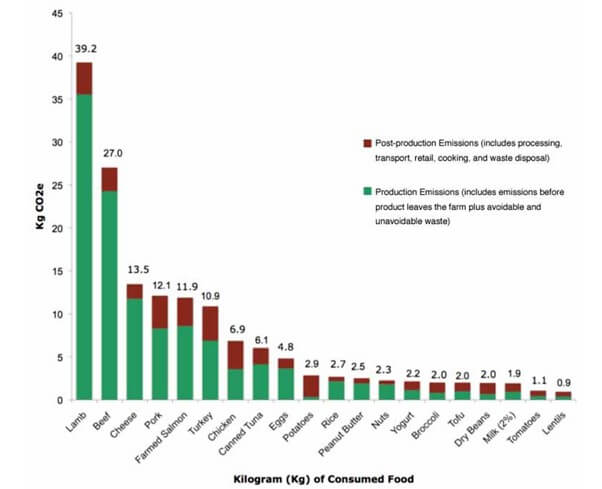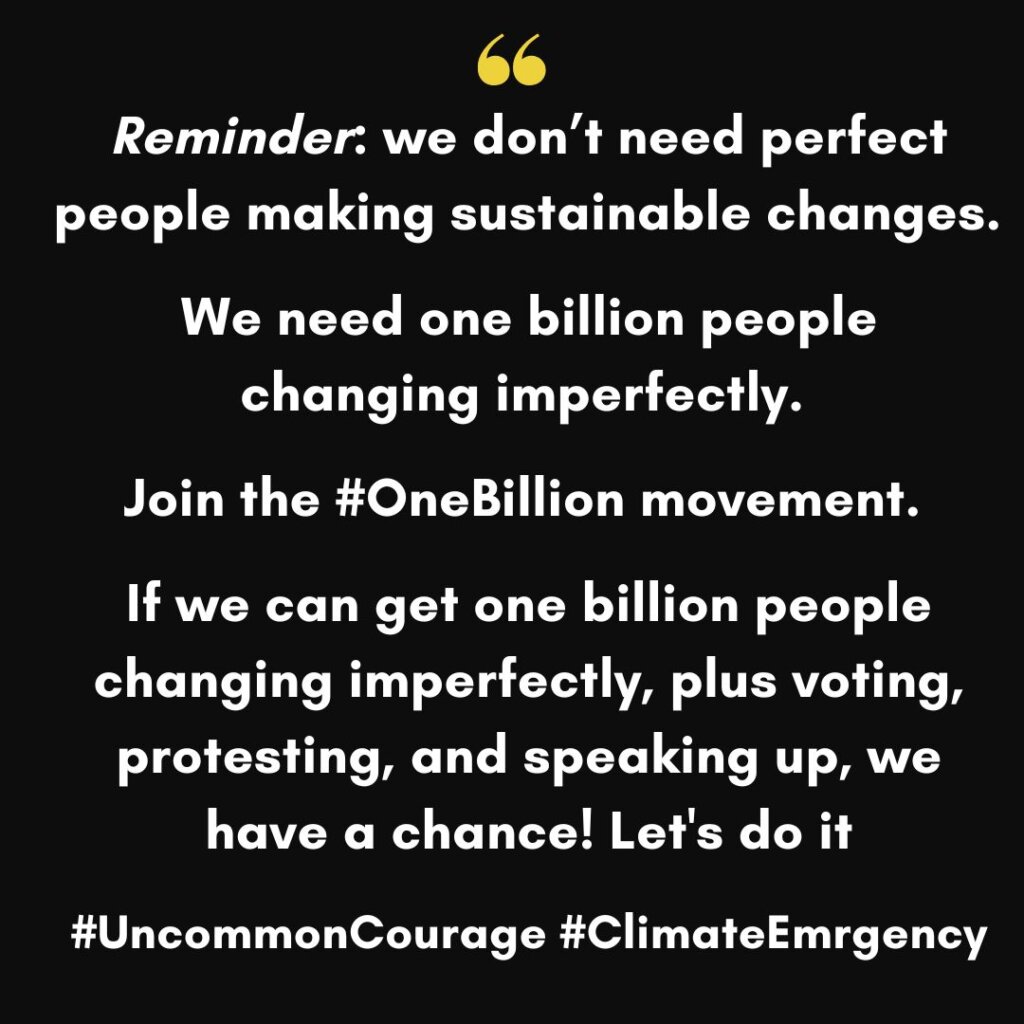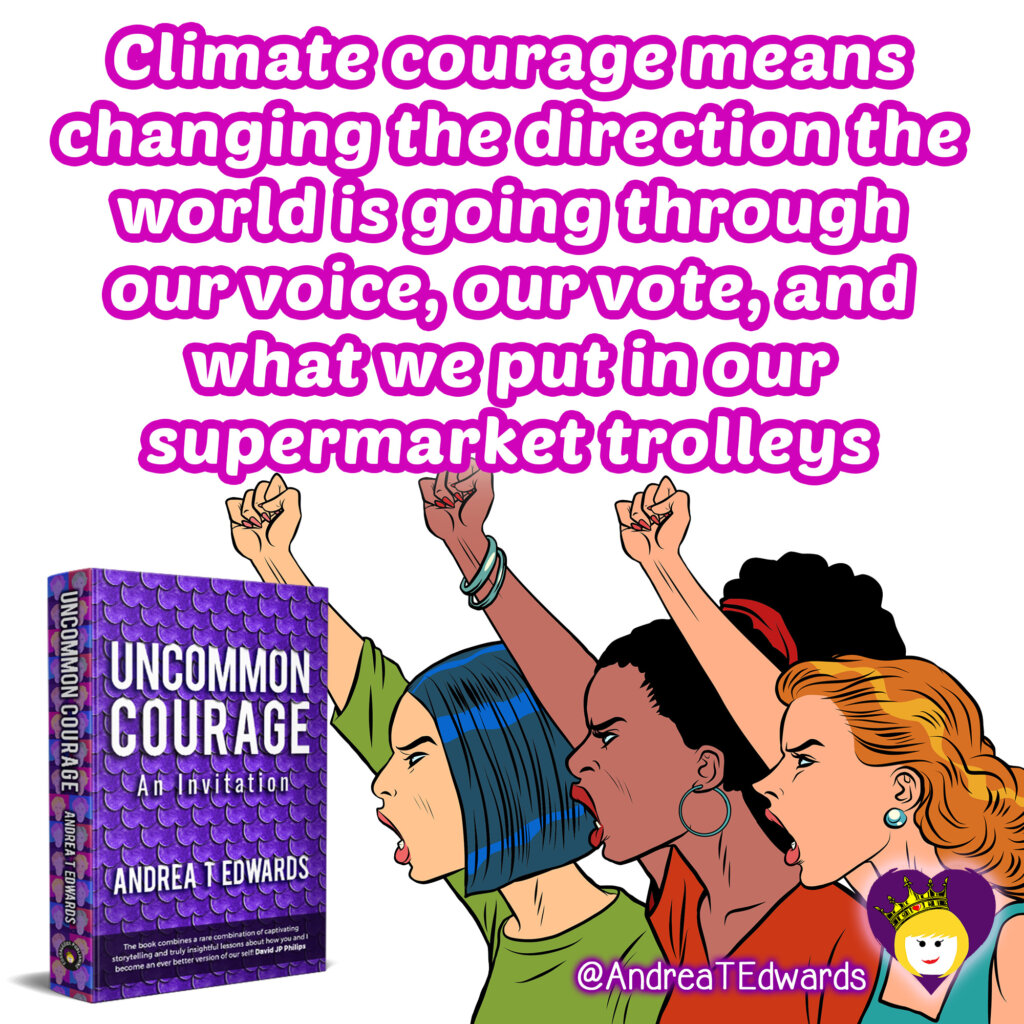I LOVE meat. Love it. Always have, always will. But the abundance of meat is one of the key challenges we must address with the climate emergency. By facing up to it, we don’t just address meat, we tackle land use and soil degradation, deforestation, methane, animal cruelty, animal feed, and so much more.
It’s an issue requiring completely open minds, especially with billions of new middle-class people expected to move into being able to afford meat. So based on that, and the extreme weather events we’re seeing, it’s now or never.
Check out why Greenpeace thinks meat is bad: 7 reasons why meat is bad for the environment.
So how do you do it? And how do you do it as a family? Well, before we get to that below, please watch George Monbiot’s video where he makes the case.
If you don’t want to spend the time watching the longer interview, check out this one – just over six minutes.
And it’s not just George talking about it. Lots of people are. For those who want a figure that demonstrates the actions we all need to take – actions which would have a dramatic and positive impact on our environment – this report from University of Bonn states: Meat consumption must fall by at least 75 percent.
There is a lot of amazing research on this, so if you want to learn more, do a search using this headline. Plenty of content being released.
What can I do?
For a couple of years, I’ve been working with my boys and husband to try vegetarian and vegan meals. We look through cookbooks and online together, or take inspiration from friends who are further ahead. We work out what looks appealing, and we give it a go.
There are a lot of failures and to date, it hasn’t been as successful as I hoped. But we’re at around a 40-50% reduction now, leaving us scope to do better.
Last night at dinner I said: we must reduce our meat consumption by 75% and then thought, what does that mean in numbers?
So, I worked out how many days 25% is and it appears we can have meat 7-8 times a month. Awesome, something tangible to work with.
Now which meat can we have, to ensure the smallest impact? You may have seen graphs like this from Environmental Working Group. Lamb is tops, then beef and on it goes. Some put beef on top, but essentially, red meat has the worst climate impact, so it’s a simple one to address.

Now that we had a real figure to work with, we continued the conversation to seek an agreement. Together, we agreed red meat once a month is possible, and then if we have meat on the other 6-7 days, we can focus on chicken, but only if we buy it locally, and only if it’s not full of antibiotics. Deal.
Another opportunity – we agreed – is to try plant-based meats. And I mean being really open to it. Have you tried putting plant-based mince in spaghetti Bolognese? Did anyone notice? I’m doing that soon, so will report back.
But are plant-based meats good for the environment?
This article seems to think so – Plant-based meat for a growing world
This article too, although recognizing it’s an imperfect solution – Is Plant-Based Meat Better for the Environment?
This seems pretty conclusive – Yes, plant-based meat is better for the planet.
A couple of years old, but a good read – Is fake meat better for you, or the environment?
So, what’s the answer?
The challenge for us regular consumers is confusion – is it better or not? Overall, it appears to be better for the environment, but plant-based meats are still up there with red meat in some reports based on its whole emissions profile.
The health of it is also being challenged – i.e., very high salt content. Not to forget, the ingredients, like soy, is another hot topic being debated. This article goes into more depth on that issue, and the conclusions are positive for soy.
But it’s hard when it all appears so confusing, right?
This is what I’ve learnt
- All we can do is the best, based on the knowledge available today, but we must do the research.
- Work with your family to find vegan or vegetarian recipes everyone loves, and be patient, it takes time to succeed. But if you go together, it works better. There is no way I could force my boys to do this. They have to want to do it. The benefit is, they’ve always loved fruit and vegetables, so if your kids don’t, it will definitely be more challenging.
- Commit to reducing meat intake by 75% and get an agreement that everyone is in – maximum 7-8 meals with meat per month. If you can’t do it straight away, work towards it.
- If you must eat red meat, see if everyone can agree to one steak or burger a month – no more.
- Try some plant-based meat (if you haven’t already) and see if the family like it. Sometimes the best way to eat this ‘meat’ is not to tell anyone its plant-based until they’ve tried it. Hey parents know about tricking kids with food. We’ve all done it.
Some collective ideas
- Campaign the global fast-food chains to make all burger’s plant-based as soon as possible (and I mean this year, next year earliest). If we really want to make a big impact, this is where we must focus. Let’s all rise up and force them to change at scale, worldwide, ASAP. Until it happens, boycott fast-food. The Amazon is going to be a savannah if we don’t sort this out. We must stop the plunder.
- Keep your eyes open to research on plant-based meat. The industry is known as being secretive and we need complete transparency! In fact, transparency is necessary in every industry today. If they want our trust, this is how to get it. Let’s demand transparency.
- Meet JBS, the Brazilian meat company ripping the Amazon and other forests around the world apart, to supply the fast-food industry with meat. Check out the sustainability messaging on the front page!! Amazing. A company worth digging into. You’ll be amazed by the story, trust me.
So, there you go. We all must do our part and it looks like addressing our diets can be one of the best things we can do. It won’t be easy for many, but let’s get started.
Final thought…

Cheers
Andrea
Environment education
Three environment resources to help navigate this challenging territory. 1. Knowledge, constantly updating. 2. Individual action and awareness, so we do our part. 3. Resources for those struggling with eco-anxiety. Please share with your community.

Uncommon Courage: an invitation – my latest book
Uncommon Courage is an invitation to be your courageous best self every day. It’s also an antidote to the overwhelm, fear, and rage rolling around the world. But it’s more than a book; it’s an invitation to join an inclusive community that wants to better understand humanities challenges – both global and personal – in order to take courageous action and create a better world for everyone. If Covid19 has given us the time and space to reflect, Uncommon Courage gives us the nudge we need to create lasting change.
You can buy it on Amazon, Apple Books, Barnes & Noble, Book Depository, Booktopia, Smashwords, Kobo, Gardners, Odilo, Indie Bound, BookShop by BookTrib and Scribd.
Better yet, order it from your local bookstore, so you can #SupportLocal.
You can read the reviews, including a new five-star review on Book Commentary, another five-star review on ReaderViews, a review on BookTrib, and three more on Booklife, another on Book Commentary and Blue Ink Reviews. I’m also collating reviews on my Website too. Have a look and grateful to everyone who has written or recorded one.
Come and join the conversation in my new Facebook Group Uncommon Courage.
Uncommon Courage, the podcast – Apple, Spotify and everywhere podcasts are published.
The Know Show
Check out The Know Show. It’s a fortnightly wrap up of the news!
18 Steps to an All-Star LinkedIn Profile (2022 edition)
Listed by Book Authority in the 100 Best LinkedIn Books of All Time and 22 Best New LinkedIn eBooks To Read In 2021 and 2022 categories. Grab it today if you want to take your professional presence to the next level! When it comes to LinkedIn, it really is time to ask — can you really afford not to have this book in the hands of every employee?
Connect with me
andreatedwards.com , uncommon-courage.com
LinkedIn, Twitter, Facebook, YouTube, Instagram, Tik Tok, Medium, Amazon.
Feedback
Have I done a great job for you? Can you write a reference on my LinkedIn profile or on my Google Business page? If not for me, why not write one for someone else who inspires you or has helped you? Join the #GivingEconomy.
Are you a Social CEO? The Social CEO: How Social Media Can Make You A Stronger Leader.
Want to claim your stage? Unleash Your Voice – Powerful Public Speaking for Every Woman




4 Responses
Andrea, this is an excellent post and I find the switch from meat to Vegie or dauntingly Vegan to be difficult, for a very simple reason-Olli’s work is very physical and the quick hit of chicken, bacon/sausage is keeping going food. But I know perfectly half the world has just as physical a life/work and they manage although they will snaffle anything meaty coming their way too. I will persevere, and beef has become inedible now by way of cutting one red meat. More must follow. Your posts are inspirational. Yours Ollie
Thanks so much Olli, I appreciate your very kind words! It’s so hard cutting meat out when you’ve loved it all your life, and also finding ways to satiate when you use so much energy in your life! But I think you’ve already done the hardest part, getting rid of red meat. Small steps, and if we all take them, we might actually get somewhere. I personally think the Fast Food chains could make the biggest impact by moving fast, but we have to push for that! Awareness is part of ensuring we do xxxxx